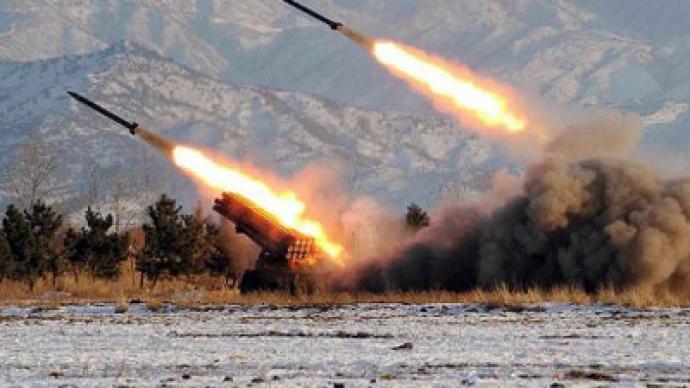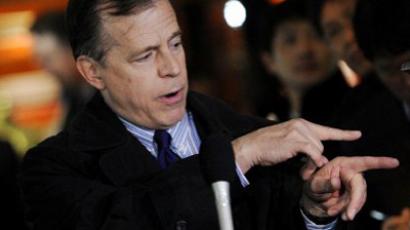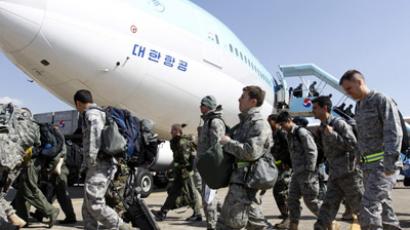N. Korea calls criticism of its nuclear program ‘declaration of war’

Right ahead of the Nuclear Security Summit in Seoul, North Korea announced that it will consider a statement about its nuclear program a direct “declaration of war”. This comes as the USA has condemned the country’s planned rocket launch in April.
The US administration announced on Thursday that President Barack Obama considers the North Korean “space experiment”, involving the launching of a ballistic missile with a mounted satellite, a “provocation” and direct violation of the international agreements. According to national security official Daniel Russel, Obama will discuss the issue with the Chinese and Russian leaders in the near future. North Korea, officially the Democratic People’s Republic of Korea, is gearing for the missile satellite launch scheduled for April 2012. The West condemns the move, saying that it comes in violation of the UN Security Council resolutions 1718 and 1874, prohibiting the development of ballistic missiles by the country, as well as the conducting of nuclear tests. The Western states, as well as South Korea, fear that the launches could be part of Pyongyang’s effort to build intercontinental missiles, while nuclear tests might be aimed at providing them with nuclear warheads. Ex-MEP Glyn Ford however explained to RT that both sides of the conflict – the US and its allies South Korea and Japan on the one hand, and North Korea on the other – seem to be wrong. “If you have the technology to launch a satellite – and this would be North Korea’s third attempt to launch a satellite – it clearly shows that you are developing a potential, if you want long range intercontinental ballistic missiles,” he said. “But at the same time South Korea and Japan are both doing exactly the same thing. South Korea attempted to launch a satellite just after the last North Korean attempt and Japan has put satellites into orbit. So, there is a little bit of double standards floating around here”.He added that North Korea, in fact, alleviates the risk to Japan as it is shifting the launch from the east coast to the west coast, so it will not fly over Japan.The country’s nuclear program and missile launches have long been a bone of contention for the country’s relations with much of the world, leading to its increased isolation. Back in 2009, North Korea exited the six-party nuclear talks after the UN had condemned its first ballistic launch. The country carried out two successful nuclear tests back in 2006 and 2009, which the West condemned. On Wednesday North Korean state-run Korean Central News Agency (KCNA) reported that the adoption of any statement against its nuclear program at the upcoming Nuclear Security Summit in Seoul would be an “extreme insult”. “Any provocative act would be considered a declaration of war against us and its consequences would serve as great obstacles to talks on the denuclearization of the Korean Peninsula,” said the agency. It is expected that the Seoul conference will pay some attention to the North Korean nuclear program. South Korean president Lee Myung-bak said that the meeting might play a “big role in expanding the international community's support for the denuclearization of the North." In its latest report, the KCNA said that Lee Myung-bak and his “group of traitors” are trying to provoke “nuclear war”. It added that in order to resolve the tense situation in the region, it is necessary to talk denuclearization of the whole peninsula, instead of speaking of the “non-existent” North’s nuclear issue. The Nuclear Security Summit in Seoul, due on March 26-27, will gather heads of states and representatives of 58 countries and international organizations. US leader Barack Obama and Chinese president Hu Jintao are expected at the meeting.














